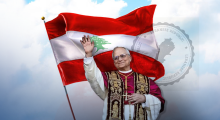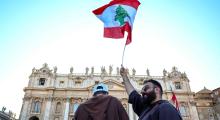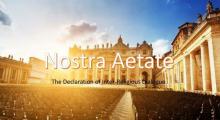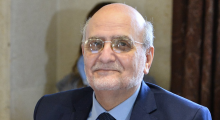Issued by the Catholic Center for Studies and Media - Jordan. Editor-in-chief Fr. Rif'at Bader - موقع أبونا abouna.org
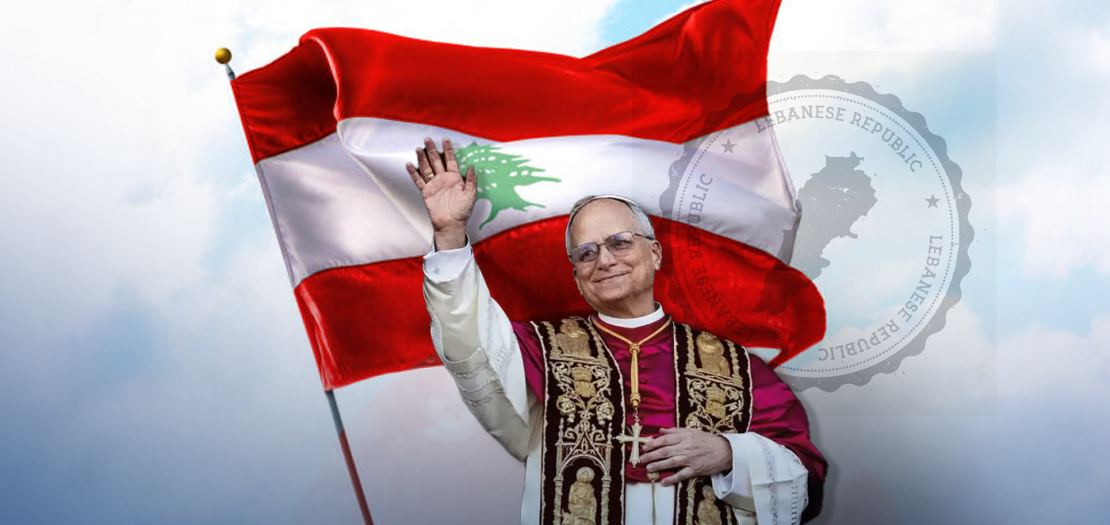
Lebanon has been affected by several crises in the last years. Starting in 2011, the arrival of 1.5 million Syrian refugees fleeing the newly erupted war in their country triggered a devastating domino effect on the country’s already weak finances. Social and health services came under heavy strain.
As refugees in a country of only 4.5 million inhabitants, they tried to enter the labor market to offer their skills and avoid living off aid, which generated harsh mechanisms of competition with their Lebanese hosts. Then came the political instability.
And, on August 4, 2020, the explosion took place at the port of Beirut, the same year of the COVID-19 pandemic. More recently, Lebanon also saw renewed tensions with Israel.
In an interview with Vatican News, Father Michel Abboud, president of Caritas Lebanon, stressed that Pope Leo XIV’s upcoming trip to the Land of the Cedars, from November 30 to December 2, is like a father showing his closeness towards a wounded child, in light of the extreme fragility the country has faced.
What expectations do the Lebanese people have for this trip?
The Lebanese people know very well that the Pope’s visit is an apostolic visit, a paternal one. This visit encourages them to see themselves as part of the Church. It is a visit of solidarity: thanks to it, the people will know that, despite all the difficult situations they have been through, they must not feel abandoned.
The Church and the world stand with Lebanon. This is very important for us: the fact that the Pope, the head of the Catholic Church, comes here, to the country of the Cedars and of the martyrs.
What are Caritas Lebanon’s hopes for this visit?
Caritas always keeps in mind that the Pope, as the head of the Church, is its leader, because we are a Church organization. Caritas works for all the Lebanese people, without discrimination, for the good of everyone.
In the last five years, Lebanon has gone through a serious situation, especially at the economic level. This crisis has created what we call “the new poor.” These people, who were once donors to Caritas, now need our help. By visiting Lebanon, the Pope will give a voice to people who are suffering, and that voice will be heard by many nations that can help.
Some time ago, Caritas Lebanon had the opportunity to meet Pope Francis. We spoke to him about the cry of the Lebanese people, of the poor. We asked him to unite his voice with ours before the international community so that it might listen to those suffering in silence. We have always placed our hope in the Pope.
What is the most urgent issue to address right now in Lebanon?
We are waiting to know when there will finally be peace. We are living in a state of constant anxiety. If you speak with people in Lebanon, they live as though they were at war. For this reason, we feel anxiety about tomorrow. We do not have a secure future for now.
We often say, “Give us peace, take whatever you want.” We live in a state of anxiety, but we also have hope that something will happen. When the Pope comes, the Lebanese will feel that he is bringing a sign of peace. There are 4 million Lebanese in Lebanon and more than 12 million outside the country. They would be ready to return and live here if a peaceful situation allowed them to, and if they could work.
How would you describe Caritas’s work in recent years?
Our mission has not changed, but we have increased the range of our services. We work to keep our people alive. If a person is hungry, they die. We give them food so that they do not die. The same goes for the sick. We provide doctors so they can stay alive. For those who cannot afford hospital care, we pay for it.
There are dramatic statistics about how many people have died because they could not receive treatment. In recent years, Caritas Lebanon has paid millions of dollars—thanks to many generous donors—so that people could afford hospital care.
The Syrian migrants in our country are images of God for us. We feel a spiritual obligation to help them. Their number is increasing. Caritas has therefore expanded its services. We have resources to manage thanks to many generous people, donors in Lebanon and abroad, but the number of poor has also increased.
Pope Leo will also visit the port of Beirut, the site of the devastating explosion that occurred on August 4, 2020. What does that tragedy still represent for the country and for Caritas?
Caritas worked on the consequences of the explosion. We provided a great deal of help, especially psychological support, but also assistance with the reconstruction. The people of Beirut who lost their homes still thirst for truth.
They want to know who was responsible for that explosion. Pope Leo’s visit will help people not feel abandoned. The consequences of the explosion still weigh on their lives. The Pope’s journey has a strong symbolic value—of fatherhood and solidarity—for all the martyrs who lost their lives in the explosion.
It will be of consolation to the families who lost loved ones. It will show solidarity with all those injured who lost their homes. For us at Caritas, it will be an encouragement to continue our mission.
John Paul II, first, and later Pope Francis, said that Lebanon is more than a country—it is a “message, a project of peace.” Do you believe this idea is still valid today?
Yes, because in Lebanon there are 18 religious communities, especially Muslims and Christians. They have understood that one cannot live in isolation, but only in community. If Muslims believe that God is mercy, then they must live accordingly: this mercy is for the people with whom they live.
If Christians believe that God is love, then they must live this love toward others. Therefore, if every community lives out its own religiosity and religion, they will live in harmony. Lebanon thus remains a message, a testimony.
Many young people are leaving Lebanon. Do you think the Pope’s visit can offer them a concrete sign of hope?
Yes, because when they see that the Pope is coming to their country, they will feel longing and will want to return. They may experience again the trust in their country that they have lost. As soon as they see that the Pope is in Lebanon, they will know that they are not alone.



